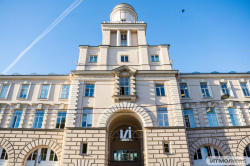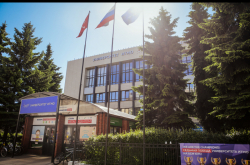"We set ourselves a task to assess the quality of education in Russia and find out which universities train young people with an entrepreneurial streak, and even those who will come to enter the Forbes list or become part of the Russian political elite," comment the ranking's authors.
The ranking assessed over 600 higher education institutions by 10 indications in three groups: quality of education (up to 50 points of the overall amount), graduates' quality (up to 30 points), and Forbes factor (20 points maximum).
The ranking was based on data gathered by the Ministry of Education and Science. What's more, its authors studied over 1,600 biographies of those included in the Forbes list and their children, with regard to universities they graduated from. The Forbes factor accounted for the educational institution's “class” and the portion of entrepreneurs in the overall number of its graduates.
The ranking's results offer an opportunity to get a different perspective of the line-up of Russian universities. For one, the Moscow State University that holds leadership positions in international rankings was placed 6th, with average results in the quality of education and graduates and a Forbes factor of 5.55 (the 4th result in this criterion). For comparison, the most high-class universities according to the ranking were Moscow State Institute of International Relations (11.08), Moscow Institute of Physics and Technology (7.20), and Russian Presidential Academy of National Economy and Public Administration (5.98).
ITMO University was placed 7th in the overall ranking with a high quality of education indicator (29.1), which was second only to the rankings leader, the New Economic School private university. ITMO's "class" indicator amounted to 1.8 points, and graduates' quality - 16.9.
Apart from the New Economic School, Moscow Institute of Physics and Technology (50.73 points) and The Russian Presidential Academy of National Economy and Public Administration (49.92) were the ones to make the top-3 of the list.
"It sure is great to get into the Forbes ranking, especially being placed 1st among St. Petersburg's universities. Without a doubt, one has to be careful about trusting new rankings, especially when it comes to universities. A university is a very complex system, a lot more complex than any corporation or bank, which is why it is not easy to assess them with standard, typical metrics. Still, the value of such rankings is that they offer an opportunity to assess one's strong and weak points in comparison with competitors," notes Ilya Kuftiryov, Director of ITMO's Rankings Research Center.
The Forbes factor, continues Mr. Kuftiryov, shows that a university's reputation by itself isn't necessarily determinant to its graduates' successful career. Yet again, high indications in graduates' quality do not guarantee a high Forbes factor. In other words, it is the people, not the universities, who are responsible for their careers.
You can see the full version of the ranking here (in Russian).





